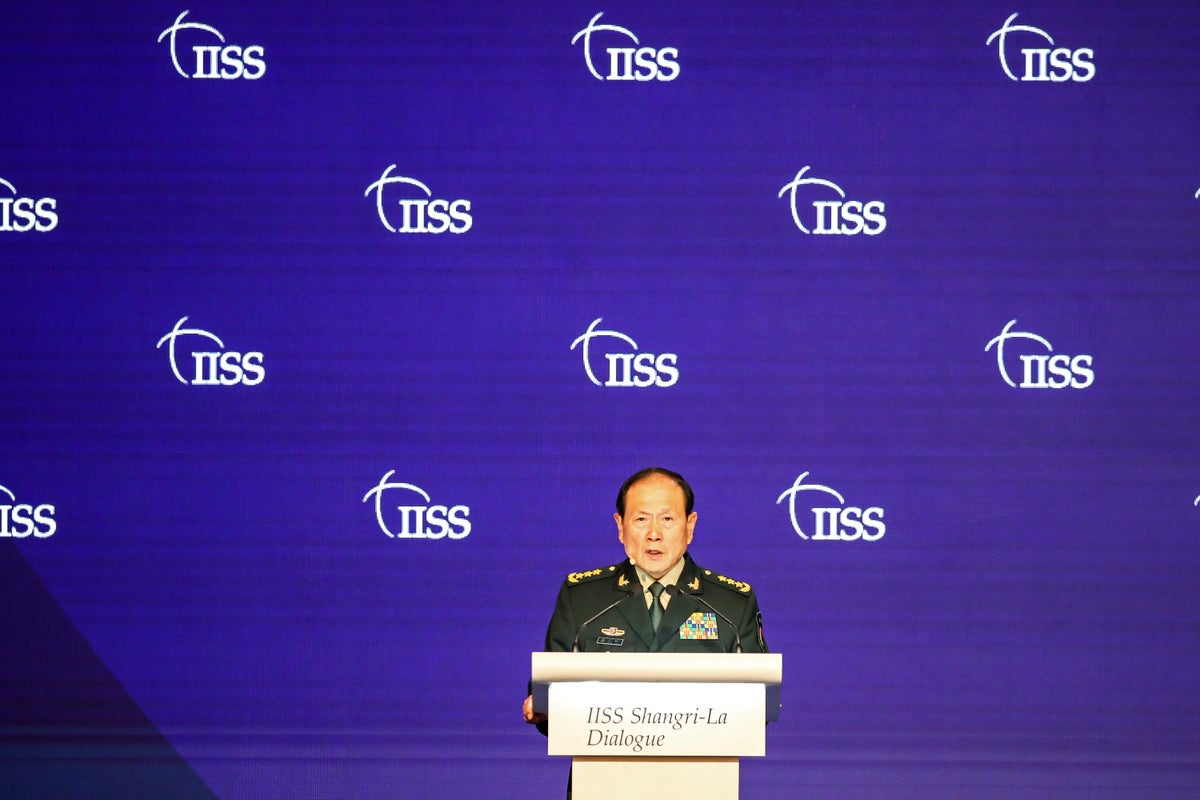
China's defense minister accused the United States on Sunday of trying to “hijack” the support of countries in the Asia-Pacific region to turn them against Beijing, saying Washington is seeking to advance its own interests “under the guise of multilateralism.”
Defense Minister Gen. Wei Fenghe lashed out at U.S. Secretary of Defense Lloyd Austin, rejecting his “smearing accusation” the day before at the Shangri-La Dialogue that China was causing instability with its claim to the self-governing island of Taiwan and its “destabilizing military activity” in the area.
Austin had stressed the need for multilateral partnerships with nations in the Indo-Pacific, which Wei suggested was an attempt to back China into a corner.
“No country should impose its will on others or bully others under the guise of multilateralism,” he said. “The strategy is an attempt to build an exclusive small group in the name of a free and open Indo-Pacific to hijack countries in our region and target one specific country — it is a strategy to create conflict and confrontation to contain and encircle others.”
China has been rapidly modernizing its military and seeking to expand its influence and ambitions in the region, recently signing a security agreement with the Solomon Islands that many fear could lead to a Chinese naval base in the Pacific, and breaking ground this past week on a naval port expansion project in Cambodia that could give Beijing a foothold in the Gulf of Thailand.
Last year U.S. officials accused China of testing a hypersonic missile, a weapon harder for missile defense systems to counter, but China insisted it had been a “routine test of a spacecraft.”
Answering a question about the test on Sunday, Wei came the closest so far to acknowledging it was, indeed, a hypersonic missile, saying, “As for hypersonic weapons, many countries are developing weapons and I think there's no surprise that China is doing so.”
“China will develop its military,” he added. “I think it's natural.”
_____
Rising reported from Bangkok. Zen Soo in Hong Kong and Caroline Chen in Beijing contributed to this report.







